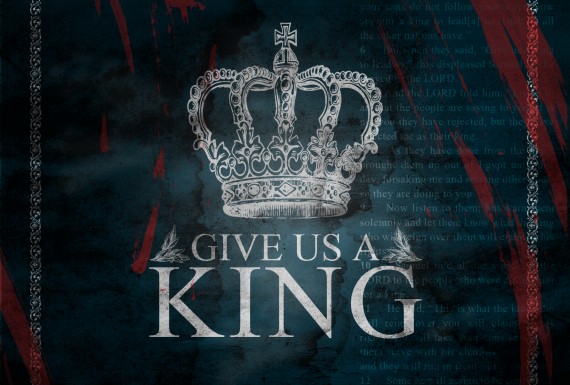This is a guest post by Sam Riviera. He spends most of his time and energy caring for others in his community so that through his life and actions they might see Jesus. He has also written “14 Reasons I Never Returned to the Institutional Church.“
If you would like to write a guest post for this blog, check out the guidelines here.
Vote for my political party. Support the following politicians. Change these laws. Do not change those laws. Put this person in charge. Then the economy will be better, our families will be protected, and people will behave as they should. We can straighten out this country if we work together.
In ancient Israel, Samuel the prophet, who had led God’s people most of his life, grew old. The nation wanted a king to rule over them, a king like the other nations had, a king to lead them into battle. Samuel was displeased, but God told Samuel that the people were not rejecting Samuel, but God. They were asking for an earthly king and kingdom, and in doing so were rejecting their true king, God.
God told Samuel to give them a king, and he did. He anointed Saul, the Lord’s chosen, to be their king. Saul, rather than God, became their king.
As Samuel warned Israel, Saul not only led them, but also introduced a system of government that included conscription, land confiscation, and taxes. Yet, the people chose that system rather than a system with no earthly king.

Is God our king, or do we live in a secular state that takes our lands (through condemnation, eminent domain, and taxes), our money (taxes and fees) and our sons and daughters (conscription), while at the same time promising often unrealized benefits?
Do we trust God, or place our trust in the state and its powers?
If God is our king, should we give allegiance to the state? Is it possible to serve both God and the state? Is it possible to live in a secular state and pay tribute to it, while at the same time serving our real king, God?
If, as N.T. Wright maintains, democracy is “society ordering itself according to its own wishes, fears and fancies” (How God Became King, p. 35), if we place our trust in our democracy, are we placing trust in a man-made system rather than in God?
Are we citizens of one or two kingdoms – the kingdom of God and the kingdom of man? Can we bring about the kingdom of God by attempting to model the kingdom of man after what we suppose the kingdom of God to look like?
If most of us agree that not all people are citizens of the kingdom of God, then is it possible for the kingdom of man to ever look like the kingdom of God? If not, what is our purpose in attempting to fashion a secular kingdom that may bear resemblance at some points to the kingdom of God?
Jesus told us to love our neighbor. Do we best accomplish that by trying to make our secular society look more like what we suppose the kingdom of God should look like? Is that what Jesus meant?
Even if we should conclude that Jesus’ command to love our neighbor probably wasn’t a call to political action, does that preclude us from political involvement?




This is something I’ve been wondering about a lot lately. These are great questions to help guide my thinking.